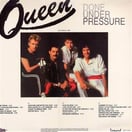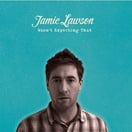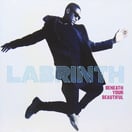What to do if your child refuses to practise
Practice makes perfect or a very unmotivated child
11/13/20232 min read


Practise makes perfect. Yes, but try telling that to a kid or teenager! Except for the very motivated child who has a very clear goal for where they want to be with their music, most kids aren't big on music practise, any more than they are keen on study. It can just feel like a chore.
If they are really motivated to learn their instrument, that might be enough to get them through practising, but if they aren’t just yet, and it's becoming a real sticking point, here are a few tips on ways to handle it.
1. Don’t nag!
The pressure and chore of practising is a very common reason why some kids quit music altogether. If your child is happy to play in the band, don’t ruin their love of music by pushing them too far too fast. While we all want to see their kids improve, especially since music lessons and instrument hire are all expensive, but if your child ends up 'not wanting to play at all' because they hate the constant practise, that’s not the outcome we are looking for. It's certainly worse than a kid who 'doesn't mind band but won't practice'. If you have been nagging or getting cross with your child over it, they can start to associate music with a negative feeling, which is going to turn them right off.
2. Try to understand
First though, try to understand why they don’t like to practise. Band songs often sounds pretty average when kids practise on their own, as they are likely not playing the melody, so it can sound like it’s wrong (because it won’t sound like it does at school) or just sound bad. It can also be hard to keep time when playing on your own, as they have to get the timing right and count rests without a conductor telling them when to come in etc.
Alternatively, they might feel a bit exposed when they aren’t playing with lots of other instruments – they might even be embarrassed about how they sound! If you think this is the case, try to get hold of audio of the songs they are playing so they can play along to it and not feel like they're playing a solo! You could even put your own headphones in and make sure they know you’re listening to your own music, not to them. They may just need a bit of space.
3. Give it a rest
If they’re really digging their heels in about practising, I suggest giving any practise a rest for now, and try again gently down the track when they are (hopefully) enjoying it more. If they’re happy to go along to band, try to forget getting ‘value for money on your investment’ and focus on the end goal – nurturing your child’s lifelong love of music.
4. Encourage them to play their favourite songs
Lots of kids decide they want to play songs they know and like instead of songs they're told to play for exams, school band or whatever program they're following. This is all fine if they enjoy it, but if they're not enjoying it, try to be open to them learning to play other styles of music. We are all different and music is music whether it's classical, pop, rock, jazz, electronic, funk and so on.
Read our blog on what to do if you child finds band boring for more ideas about making music fun!


































































Our music
The songs we learn at NSME depends on what the group members want to play as well as their level of ability. We are open to considering all types of music. We particularly try to incorporate songs that allow our band members to express their experiences or their feelings both through the lyrics and style of the music.
Of course, the nature of contemporary music (particularly rock), means that some songs are not appropriate especially for younger children, and we incorporate this issue into our music choices. We will always choose the clean versions of any songs with swearing or questionable lyrics or avoid these songs altogether depending on the age of the group. If you have any concerns about this, please get in touch.
Below is a snapshot of some of the songs our ensembles enjoy and those that are on our radar!


